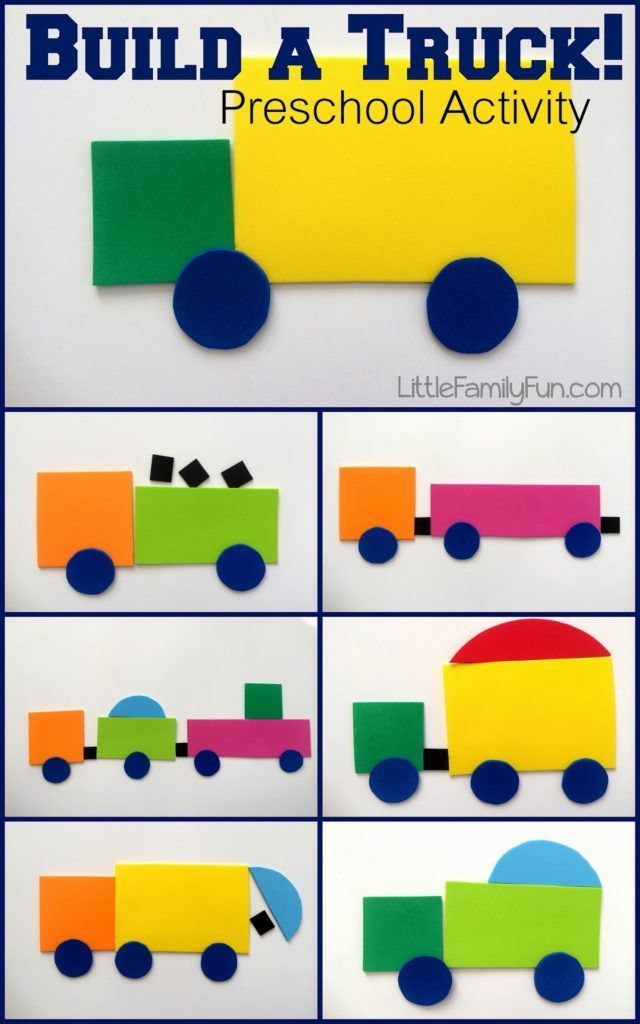Build confidence in child
Your Child's Self-Esteem (for Parents)
Sometimes it's easy to notice when kids seem to feel good about themselves — and when they don't. We often describe this idea of feeling good about ourselves as "self-esteem."
Kids with self-esteem:
- feel liked and accepted
- feel confident
- feel proud of what they can do
- think good things about themselves
- believe in themselves
Kids with low self-esteem:
- are self-critical and hard on themselves
- feel they're not as good as other kids
- think of the times they fail rather than when they succeed
- lack confidence
- doubt they can do things well
Why Self-Esteem Matters
Kids who feel good about themselves have the confidence to try new things. They are more likely to try their best. They feel proud of what they can do. Self-esteem helps kids cope with mistakes. It helps kids try again, even if they fail at first.
As a result, self-esteem helps kids do better at school, at home, and with friends.
Kids with low self-esteem feel unsure of themselves. If they think others won't accept them, they may not join in. They may let others treat them poorly. They may have a hard time standing up for themselves. They may give up easily, or not try at all. Kids with low self-esteem find it hard to cope when they make a mistake, lose, or fail. As a result, they may not do as well as they could.
How Self-Esteem Develops
Self-esteem can start as early as babyhood. It develops slowly over time. It can start just because a child feels safe, loved, and accepted. It can start when a baby gets positive attention and loving care.
As babies become toddlers and young children, they're able to do some things all by themselves. They feel good about themselves when they can use their new skills. Their self-esteem grows when parents pay attention, let a child try, give smiles, and show they're proud.
As kids grow, self-esteem can grow too. Any time kids try things, do things, and learn things can be a chance for self-esteem to grow. This can happen when kids:
- make progress toward a goal
- learn things at school
- make friends and get along
- learn skills — music, sports, art, cooking, tech skills
- practice favorite activities
- help, give, or be kind
- get praise for good behaviors
- try hard at something
- do things they're good at and enjoy
- are included by others
- feel understood and accepted
- get a prize or a good grade they know they've earned
When kids have self-esteem, they feel confident, capable, and accepted for who they are.
p
How Parents Can Build Self-Esteem
Every child is different. Self-esteem may come easier to some kids than others. And some kids face things that can lower their self-esteem. But even if a child's self-esteem is low, it can be raised.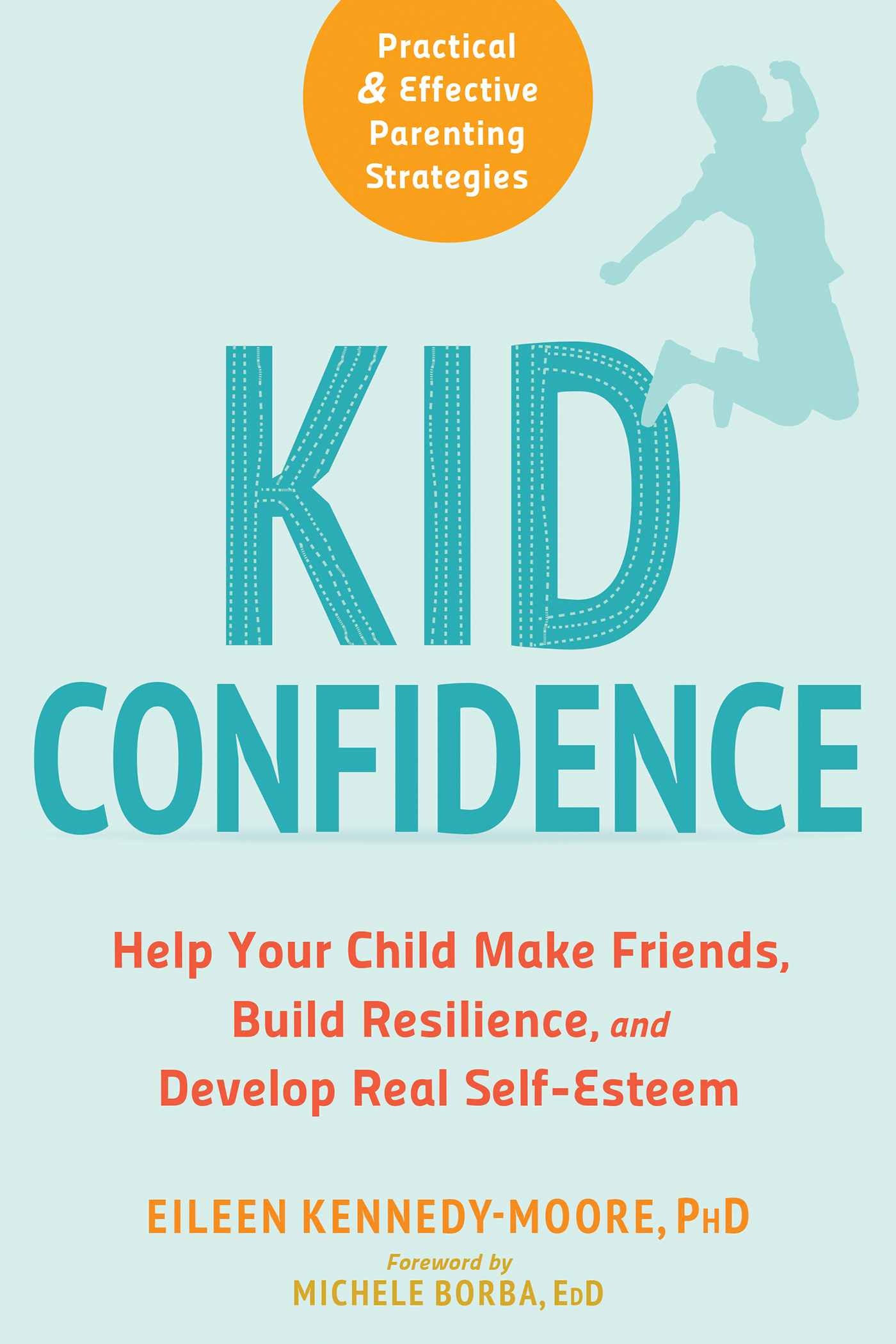
Here are things parents can do to help kids feel good about themselves:
Help your child learn to do things . At every age, there are new things for kids to learn. Even during babyhood, learning to hold a cup or take first steps sparks a sense of mastery and delight. As your child grows, things like learning to dress, read, or ride a bike are chances for self-esteem to grow.
When teaching kids how to do things, show and help them at first. Then let them do what they can, even if they make mistakes. Be sure your child gets a chance to learn, try, and feel proud. Don't make new challenges too easy — or too hard.
Praise your child, but do it wisely. Of course, it's good to praise kids. Your praise is a way to show that you're proud. But some ways of praising kids can actually backfire.
Here's how to do it right:
- Don't overpraise. Praise that doesn't feel earned doesn't ring true. For example, telling a child he played a great game when he knows he didn't feels hollow and fake.
 It's better to say, "I know that wasn't your best game, but we all have off days. I'm proud of you for not giving up." Add a vote of confidence: "Tomorrow, you'll be back on your game."
It's better to say, "I know that wasn't your best game, but we all have off days. I'm proud of you for not giving up." Add a vote of confidence: "Tomorrow, you'll be back on your game." - Praise effort. Avoid focusing praise only on results (such as getting an A) or fixed qualities (such as being smart or athletic).
Instead, offer most of your praise for effort, progress, and attitude. For example: "You're working hard on that project," "You're getting better and better at these spelling tests," or, "I'm proud of you for practicing piano — you've really stuck with it." With this kind of praise, kids put effort into things, work toward goals, and try. When kids do that, they're more likely to succeed.
Be a good role model. When you put effort into everyday tasks (like raking the leaves, making a meal, cleaning up the dishes, or washing the car), you're setting a good example. Your child learns to put effort into doing homework, cleaning up toys, or making the bed.
Modeling the right attitude counts too. When you do tasks cheerfully (or at least without grumbling or complaining), you teach your child to do the same. When you avoid rushing through chores and take pride in a job well done, you teach your child to do that too.
Ban harsh criticism. The messages kids hear about themselves from others easily translate into how they feel about themselves. Harsh words ("You're so lazy!") are harmful, not motivating. When kids hear negative messages about themselves, it harms their self-esteem. Correct kids with patience. Focus on what you want them to do next time. When needed, show them how.
Focus on strengths. Pay attention to what your child does well and enjoys. Make sure your child has chances to develop these strengths. Focus more on strengths than weaknesses if you want to help kids feel good about themselves. This improves behavior too.
Let kids help and give. Self-esteem grows when kids get to see that what they do matters to others.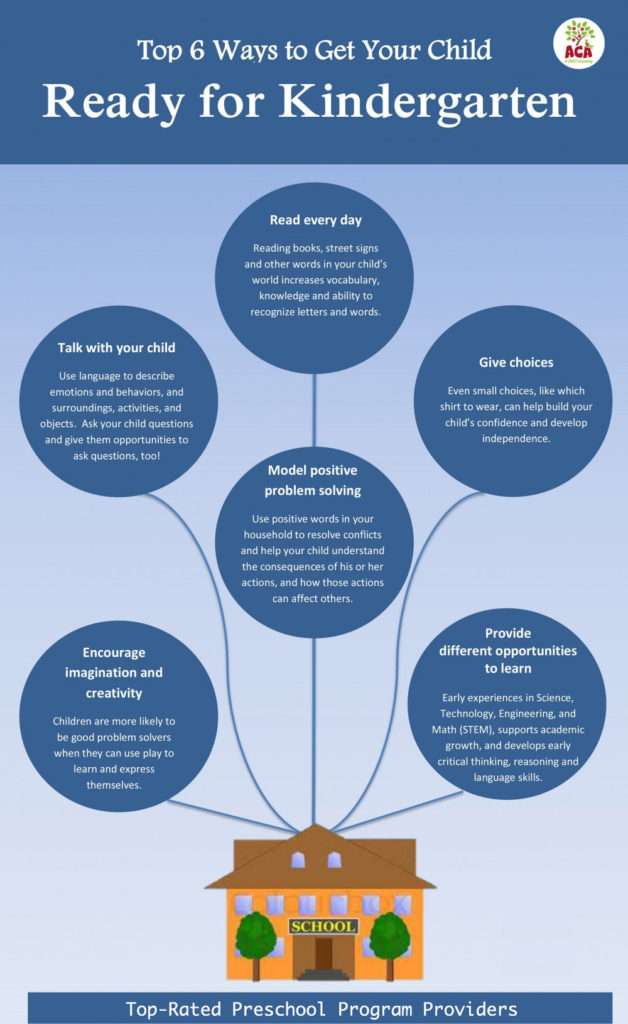 Kids can help out at home, do a service project at school, or do a favor for a sibling. Helping and kind acts build self-esteem and other good feelings.
Kids can help out at home, do a service project at school, or do a favor for a sibling. Helping and kind acts build self-esteem and other good feelings.
Reviewed by: D'Arcy Lyness, PhD
Date reviewed: July 2018
12 Tips to Raise Confident Children | Building Self-Esteem
Right from birth, kids learn new skills at a dizzying rate. And along with those new abilities, they also acquire the confidence to use them.
As children get older, that confidence can be as important as the skills themselves. To thrive, kids need to trust in their own capabilities while, at the same time, knowing that they can handle it if they aren’t successful at something. It’s by experiencing mastery and rebounding from failure that they develop healthy self-confidence.
Here are 12 ways you can set kids up to feel capable and get the most mileage out of their skills and talents.
1. Model confidence yourself
Even if you’re not quite feeling it! Seeing you tackle new tasks with optimism and lots of preparation sets a good example for kids.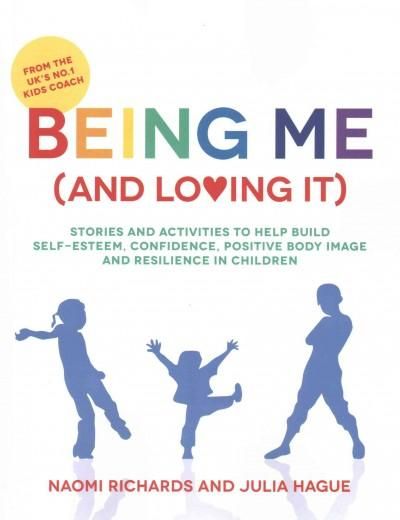 That doesn’t mean you have to pretend to be perfect. Do acknowledge your anxiety, but don’t focus on it—focus on the positive things you are doing to get ready.
That doesn’t mean you have to pretend to be perfect. Do acknowledge your anxiety, but don’t focus on it—focus on the positive things you are doing to get ready.
2. Don’t get upset about mistakes
Help kids see that everyone makes mistakes and the important thing is to learn from them, not dwell on them. Confident people don’t let fear of failure get in their way—not because they’re sure they won’t ever fail, but because they know how to take setbacks in stride.
3. Encourage them to try new things
Instead of focusing all their energy on what they already excel at, it’s good for kids to diversify. Attaining new skills makes kids feel capable and confident that they can tackle whatever comes their way.
4. Allow kids to fail
It’s natural to want to protect your child from failure, but trial and error is how kids learn, and falling short on a goal helps kids find out that it’s not fatal. It can also spur kids to greater effort, which will serve them well as adults.
5. Praise perseverance
Learning not to give up at the first frustration or bail after one setback is an important life skill. Confidence and self-esteem are not about succeeding at everything all the time, they’re about being resilient enough to keep trying, and not being distressed if you’re not the best.
6. Help kids find their passion
Exploring their own interests can help kids develop a sense of identity, which is essential to building confidence. Of course, seeing their talents grow will also give a huge boost to their self-esteem.
7. Set goals
Articulating goals, large and small, and achieving them makes kids feel strong. Help your child turn desires and dreams into actionable goals by encouraging them to make a list of things they’d like to accomplish. Then, practice breaking down longer-term goals into realistic benchmarks. You’ll be validating their interests and helping them learn the skills they’ll need to attain their goals throughout life.
8. Celebrate effort
Praising kids for their accomplishments is great, but it’s also important to let them know you’re proud of their efforts regardless of the outcome. It takes hard work to develop new skills, and results aren’t always immediate. Let kids know you value the work they’re doing, whether they’re toddlers building with blocks or teenagers teaching themselves to play the guitar.
9. Expect them to pitch in
They might complain, but kids feel more connected and valued when they’re counted on to do age-appropriate jobs, from picking up toys to doing dishes to picking up younger siblings from a play date. Homework and after-school activities are great, but being needed by your family is invaluable.
10. Embrace imperfection
As grown-ups we know perfection is unrealistic, and it’s important for kids to get that message as early as possible. Help kids see that whether it’s on TV, in a magazine, or on a friend’s social media feed, the idea that others are always happy, successful, and perfectly dressed is a fantasy, and a destructive one. Instead, remind them that being less than perfect is human and totally okay.
Instead, remind them that being less than perfect is human and totally okay.
11. Set them up for success
Challenges are good for kids, but they should also have opportunities where they can be sure to find success. Help your child get involved with activities that make him feel comfortable and confident enough to tackle a bigger challenge.
12. Show your love
Let your child know you love him no matter what. Win or lose the big game, good grades or bad. Even when you’re mad at him. Making sure your child knows that you think they’re great — and not just when they does great things — will bolster their self worth even when they’re not feeling good about themselves.
Video Resources for Kids
Teach your kids mental health skills with video resources from The California Healthy Minds, Thriving Kids Project.
Start Watching
Mentor » Blog Archive » How to win a child's trust?
Trust and love give rise to a feeling of comfort and security in a person.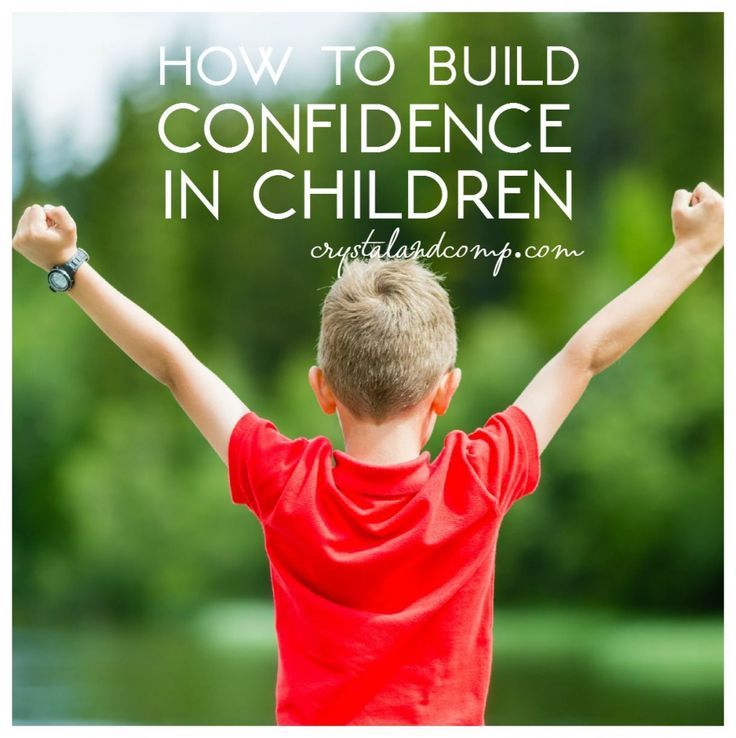 Surrounded by this reliable warmth, the child gains faith in his abilities, calmly grows and develops, learns the world. But children won't trust their parents just because they have to. In order for the feeling of trust to become stable, it needs to be repeated many times in the mind. How to win and keep the trust of a child? Psychologist Sarah Radcliffe gives good advice to parents on this matter. Here are some of them:
Surrounded by this reliable warmth, the child gains faith in his abilities, calmly grows and develops, learns the world. But children won't trust their parents just because they have to. In order for the feeling of trust to become stable, it needs to be repeated many times in the mind. How to win and keep the trust of a child? Psychologist Sarah Radcliffe gives good advice to parents on this matter. Here are some of them:
1. Prepare your child for life - this is the real care of him. Parents should instill in their children practical skills in various areas of life, as well as explain what they will do and experience in the future. For example, a child needs to do inhalations for the first time in a clinic. When they put him at the table, put on a mask, he can simply be horrified. Such a reaction can be easily avoided if you tell the child in advance what exactly (and why) they will do with him in the clinic. You can bring the child there in advance and show how this procedure is carried out with other children; it is possible to recreate the entire procedure while playing "hospital". Everything will help ease the child's anxiety and fear of the unknown. When children manage to do something on their own, but under the guidance of adults, they involuntarily begin to trust their father and mother, their life experience. They gain confidence that they will not be abandoned and will always provide help and support.
Everything will help ease the child's anxiety and fear of the unknown. When children manage to do something on their own, but under the guidance of adults, they involuntarily begin to trust their father and mother, their life experience. They gain confidence that they will not be abandoned and will always provide help and support.
2. Satisfy your child's need for companionship. Willingness to communicate with your child is another way to win his trust. A son or daughter feels secure if he knows that he can always turn to his parents with any questions, with his experiences, discoveries and anxieties. It is important to let the child feel that he has someone to rely on, that at the right time there will be a person nearby who is able to understand and accept any information, help with advice, and provide support.
Not only does a small child need frequent contact with their parents, but a teenager also needs to communicate with them. Children who study away from home may also treat their parents with trust and love, but their feelings are largely based on memories and impressions of the past. In rare moments of communication with such children, parents should show maximum participation and interest in their lives, their problems and anxieties.
In rare moments of communication with such children, parents should show maximum participation and interest in their lives, their problems and anxieties.
3. Be "predictable" to your child. The predictability of a person, that is, his ability to act as expected of him, already inspires confidence in itself. If the child knows exactly how the parents will react to a certain situation, he can anticipate the possible consequences of his various actions and adjust his behavior accordingly. And vice versa. When a child cannot foresee the consequences of his behavior, not only his trust in his parents is put at risk, but also elementary mental health. For example, one time the daughter receives praise for helping to prepare dinner, and the other time she listens to dissatisfied statements (“Don’t bother me, I’m in a hurry!”, “Don’t touch anything!”). It is already difficult for him to understand what to expect from his mother in response to his actions and what is required of him. Such insecurity can lead to a loss of mental stability and a sense of security.
Such insecurity can lead to a loss of mental stability and a sense of security.
4. Always keep your promises. There is no greater obstacle to gaining trust than a broken promise. By promising, we instill hope in the child: “if you behave well, then on the weekend we will go to the cinema with you” or “if you help me clean the apartment, we will have time to go to the carousel”. It is necessary to keep your word and fulfill the promises made to the child. However, children perceive as a promise any of our statements relating to the future: “Today for dinner I will cook mashed potatoes with meatballs” or “I will arrive in an hour.” We don't have to say the word "promise" for the child to accept it as such. If you announce an upcoming event, the child takes it as your promise. When the waiting process ends with the successful implementation of plans, he is satisfied and strengthened in the thought that you can be trusted.
It is very difficult for children to understand and accept explanations for broken promises, no matter how objective they may be. It should be remembered that the child is waiting for everything to happen exactly as you said. If he does not wait, this is a clear sign that his trust in you has been lost.
It should be remembered that the child is waiting for everything to happen exactly as you said. If he does not wait, this is a clear sign that his trust in you has been lost.
5. Be honest with your children. In all our dealings we must be honest and truthful, especially in dealing with children. This is important for two reasons: we serve as an example for them, and honesty creates the basis for their trust. Most parents believe that they never use lies in their lives. However, many of our statements cannot be considered impeccably truthful: “If you behave badly, a policeman will come and take you away”, “If you don’t go home now, I’ll leave you to spend the night in kindergarten!”. It is enough for a growing person to hear several times how parents tell a lie, or inaccurately convey facts - and the lesson will already be learned.
6. Do not discuss your child with strangers. Many parents, believing that children do not have the same sensitivity as adults, allow themselves to discuss the shortcomings of their son (or daughter) in his own presence. The punishment received at home is quite enough for the child, there is no need to shame him in front of his acquaintances, who will subsequently begin to treat him with a certain prejudice. If the behavior of the child really upsets and worries the parents, they can discuss this problem with each other, consult with a specialist.
The punishment received at home is quite enough for the child, there is no need to shame him in front of his acquaintances, who will subsequently begin to treat him with a certain prejudice. If the behavior of the child really upsets and worries the parents, they can discuss this problem with each other, consult with a specialist.
7. Respect your children's feelings. Even as a joke, one should not say hurtful words to a child. It's not very pleasant to feel like an object of ridicule. Try not to give your children "joking" nicknames; under the guise of humor, they will be able to recognize the causticity. The sense of human dignity also suffers when people are put in an awkward position - especially in the presence of others. The humiliation that children experience from such scenes hurts them, and the older the child, the more respectful attitude he requires; avoid making comments to him in front of strangers, especially with peers. Parents who do not consider their children's feelings risk losing their trust.
8. Accept your child as they are. Sincere acceptance is, first of all, awareness of the limits of one's possibilities. It is impossible to demand more from a child than he is able to achieve. Children feel frustrated and upset when they are presented with overwhelming tasks. They get into stressful conditions, they may experience frequent headaches, irritability. But whatever the reaction, the problem remains the same: it is hard to live with parents who demand more from the child than he is able to do.
It is important to inspire love and trust in children while they are still very young! But it is never too late to start the path to winning the heart of a child. Efforts directed towards this will prevent possible developmental and behavioral problems and will have a healing effect on the personality of the child.
Smirnova Yu.Yu.
Methodist of the Mentor Center
Family Tree - Memo for parents: how to win the trust of children?
Rule 1. Recognize that the body of the child belongs to him.
Recognize that the body of the child belongs to him.
There is a lot behind this rule. Children cannot be force-fed. You can not insist that the child put on uncomfortable prickly tights. You can’t ruffle the cheeks, tickle and throw it into the air if the baby doesn’t want it now. The child is an autonomous person, and before all conversations, he realizes this through bodily practices. Respect the right of the child not to finish the soup, not to kiss a distant relative when meeting, not to undress in front of strangers and to remain silent if he is not ready to speak.
Rule 2: When your child finally talks about something difficult, don't overreact.
It is important for children to know that their mom and dad are generally coping with life and can help him in a difficult situation. If dad starts screaming terribly from some news, and mom starts crying bitterly, the child will either want to run away to the ends of the world from such a reaction, or save the parent himself.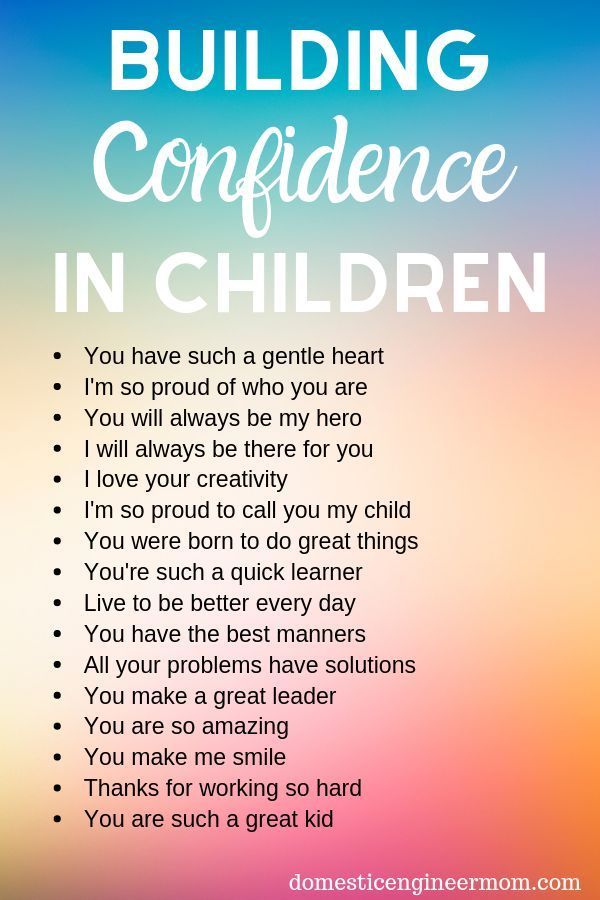
Often, already at the age of 4-5, children acquire the skill of hiding bad news from their parents - not out of fear of punishment, but out of pity for their father or mother.
Do not give children a reason to master the paternalistic role: we are the adults here, it is our business to protect and care.
Rule 3: Don't cheat.
Of course, it's easier to say to a three-year-old "You were brought from the store" than to briefly and clearly talk about germ cells. But sooner or later lies are revealed. If ever a child, because of this fairy tale, finds himself in an awkward position in front of his peers, he is unlikely to forget that the closest adult told him a lie.
Rule 4: Don't be silent.
Imagine that someone came to you with a question that you were not prepared to answer. What is abortion, why is prostitution bad, what does that obscene swear word mean... You don't have an answer, but muttering "I don't know, leave me alone" is minus five to confidence. And minus ten gives the phrase "You are still small, it's too early for you to know about it yet." Even if you are a hundred times right, the child will not appreciate such care. It is better to honestly admit that you cannot immediately answer and that tonight (in a week, on vacation) you will definitely return to this question. And really come back! (See rule 3).
And minus ten gives the phrase "You are still small, it's too early for you to know about it yet." Even if you are a hundred times right, the child will not appreciate such care. It is better to honestly admit that you cannot immediately answer and that tonight (in a week, on vacation) you will definitely return to this question. And really come back! (See rule 3).
Rule 5: Communicate securely.
It would seem that a conversation between a parent and a child can be dangerous? However, if we suddenly choose the “leopard tactics” (chase, overtake, press to the ground with our paws) and lay out all the information to the child on all uncomfortable topics, the dialogue with you will become uncomfortable for the child. To prevent this from happening, allow the child to pause your conversation at any time: “Okay, I got an answer, while I have enough” or “It’s unpleasant, scary to talk about it, let’s stop it.” And you stop. Although, in your opinion, you have not yet told everything about drugs, divorces, pregnancy, childbirth and other “adult” things.
Rule 6: Don't be afraid to apologize.
Since we are talking about sex, let's consider a typical case. The child woke up in the middle of the night, heard strange sounds and found the parents having sex. Probably surprised and scared.
In this case, are you ready to start the conversation by saying: “I'm sorry, sex is only for adults, we should have closed the door behind us”? And only then explain that sex is good, great, not dangerous, but only when you grow up.
Don't you forget to apologize if a child is reproached for a fault that he did not commit? Or, having heard unpleasant news or an awkward question, did you first splash emotions into the child, and then proceed to a constructive dialogue? In general, "Sorry!" is an appropriate and grown-up word that makes you a closer and safer person for your children.
Rule 7. Accept.
Your child may come to you with absolutely unexpected and sometimes shocking news.

